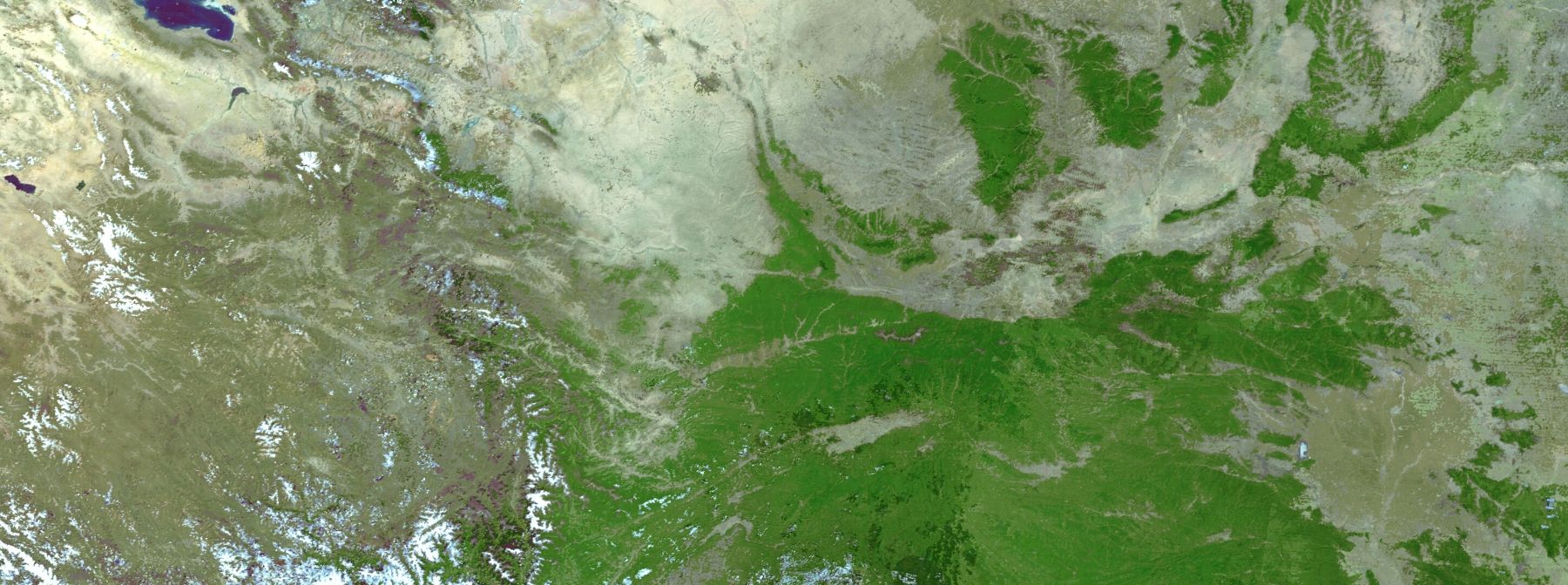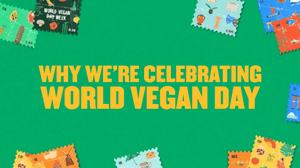
Written by Lara Jackson
It’s World Environment Week, and what better way to celebrate the millions of weirdly wonderful and fantastic creatures that we share the earth with. From the tallest giraffe, to the longest blue whale, to the tiniest bacterium – every single organism plays a vital role within their ecosystem. This incredible array of unique life is referred to as biodiversity, and it is critical to human health and well‐being.
Nature provides us with a variety of services such as clean air and water, waste decomposition, crop pollination, mental health benefits and the pure enjoyment of being outside. Whilst we may not think it matters to lose one or two species here and there, we should be concerned about the rate that we are losing biodiversity. Although it is perfectly normal for some species to go extinct as the earth changes over the years, human activities have accelerated the natural extinction rate ‐ it is now 100‐1000 times greater than what it should be. Decreasing levels of biodiversity reduces the ability and capacity of the natural environment to provide us with the benefits mentioned above. If we don’t start changing our behaviours and reducing our impact on the planet, we may be destroying ecosystems that are critical to our survival, as well as causing the extinction of creatures that have taken millions of years to evolve.
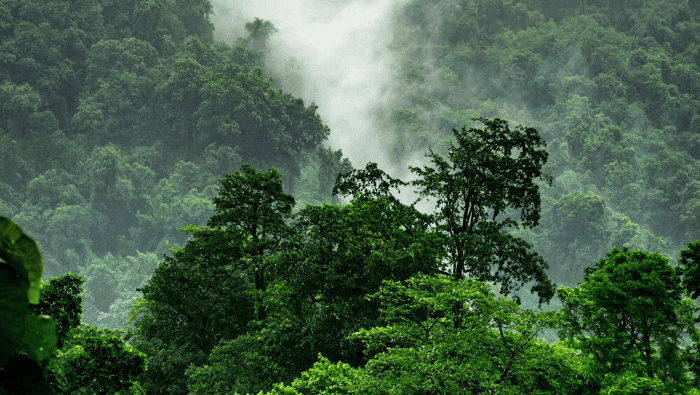
Big change starts with small actions… With the increasing awareness of the damage we are inflicting on the planet, comes a desire to do something about it by reducing our own personal footprint. Plant‐based diets have been increasing in popularity year on year and with good reason. There are numerous nutritional, health and fitness benefits – but better yet, reducing meat consumption and moving towards a plant‐based diet can drastically reduce the stress that’s placed on the environment. In fact, it’s the single biggest way that an individual can reduce their impact on the planet.
“But, how can a choice as small as my diet reduce my impact on the planet?” I hear you asking…
One of the biggest fallacies in our society is that individuals do not believe their actions can make any difference. However, just look at the change in our perception to plastic. We only recently became aware of the problems that arise from its use, and yet because people started to avoid items like plastic straws and single‐use plastics, most supermarkets have now banned the use of plastic bags, plastic straws are almost extinct and the EU is pledging to make single‐use plastics illegal by 2021.
BIG change starts with SMALL actions
Small acts add together to result in large change. Every individual has the power to make a difference. So how does moving towards a plant‐based diet reduce the negative impacts of human activities on the environment? Well, we first need to take a look at the main environmental impacts of the meat‐industry.
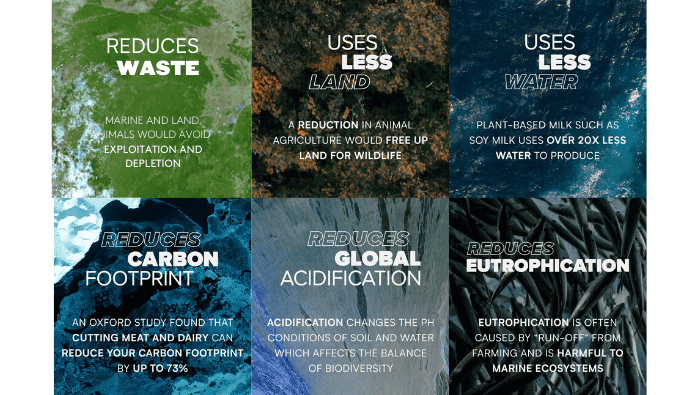
6 Impacts of the meat industry on the environment
1. Land‐use
The meat industry & land-use:The expansion of agriculture and demand for meat is one of the main causes of biodiversity loss. This is because huge tracts of land are cleared to create pastures for livestock to graze in and areas to grow food for the livestock. In countries like Brazil (one of the biggest global exporters of beef), illegal deforestation is occurring in the Amazon to make way for cattle ranches as the demand for beef booms. One report found that between 2000-2005, an estimated 70% of deforestation in the Amazon was attributed to cattle ranching. Livestock farming is the world’s largest land-user. Farmland occupies 40% of the earths habitable surface, and of that area, more than 77% is used for livestock farming – this figure combines pastures used for grazing with land to grow crops for animal feed. Despite livestock farming accounting for most of the worlds agricultural land, it only produces 18% of the world's calories.
Freeing up land for wildlife:When consumers decide to boycott beef, either by using plant-based alternatives or ‘greener’ meats, you are reducing the demand for this product. Therefore, you will be contributing to a reduction in the amount of deforestation that occurs all over the world – especially because much of the meat we find on supermarket shelves is imported. If we’re eating less meat, then less land needs to be used as (a) pastures for the livestock, and (b) as land to grow animal feed. It’s estimated that 3.5 billion people could be fed with the grain that’s used to feed livestock. In fact, if the entire world went vegan, we could convert an area the size of the African continent into regions of wilderness where wildlife could thrive. Increased wild space and connectivity between habitats would increase all wildlife populations, resulting in increased levels of biodiversity and therefore, ecosystem health.
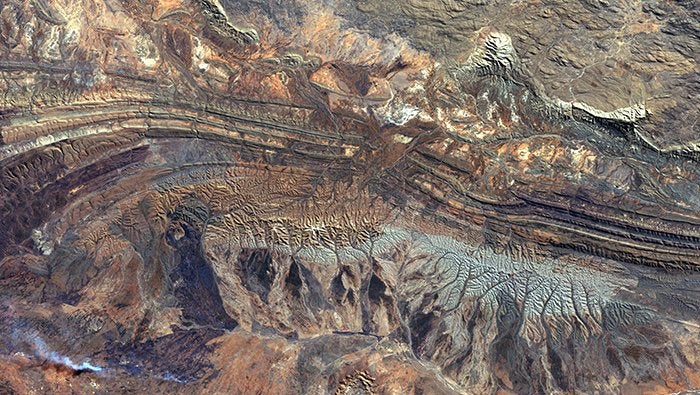
2. The emission of harmful greenhouse gases
The meat industry & carbon emissions: Globally, the meat industry accounts for 14.5% of the harmful gases emitted by human activities. Although this doesn’t sound like much, this is equivalent to the entire transportation sector – we’re including all the cars, trucks, planes and shipping tanks in the world and ALL the emissions they make in a year. There are several factors that contribute to the large volumes of harmful gases produced by the meat industry:
The deforestation that occurs to clear land for pastures causes carbon that was stored in the trees to be released into the atmosphere and consequently, there are then fewer trees to take carbon dioxide out of the atmosphere and convert it into oxygen.
Meat is shipped around the globe, resulting in greenhouse gas emissions from numerous transportation methods.
Cows produce methane, a greenhouse gas that is 25% more potent that carbon dioxide. If cows were considered a country, they’d be the third largest greenhouse gas emitter.
Reducing our carbon footprint: Even if you’re not ready to be vegetarian or fully plant-based, choosing to eat ‘greener’ meat, that doesn’t emit as many greenhouse gases (e.g. chicken) will significantly reduce your personal carbon footprint. Furthermore, selecting meat that has been raised locally and has not been transported across the world will reduce your footprint. Even having one meat-free day a week would help, and if everyone in the world participated in meat-free Monday, the reduction in harmful gases emitted would be the equivalent to taking 240 million cars off the roads every year… EVERY YEAR! If you feel you could and would like to give veganism a go, one study predicted that (hypothetically of course) if the entire world went vegan by 2050, food-related greenhouse gas emissions would be reduced by 75%.
if the entire world went vegan by 2050, food-related greenhouse gas emissions would be reduced by 75%.
3. Water use
The meat industry & water use: There have been many studies that try to quantify the water footprint of the meat industry, but it is notoriously difficult to get accurate figures. A study by Mekonnen, M.M & Hoekstra, A.Y. (2012) suggested that, on average, the following amounts of water were required to produce 1kg:
1kg of beef = 15,414 litres
1kg of sheep/goat = 8,763 litres
1kg of pork = 5,988 litres
1kg of chicken = 4,325 litres
1kg of vegetables = 322 litres.
It also stated that the water footprint of any animal product was larger than the footprint of crop products of equivalent nutritional value. Whichever study is used, and whatever the figures that are generated, scientists conclude that livestock farming requires much more intensive water use than crop products.
Saving water, one drop at a time: With the human population forecast to exceed 9.7 billon by 2050, the demand for meat will continue to increase and with it, the pressure that our animal production systems exert on the global freshwater resources. It is far more water efficient to obtain calories, protein and fat through crop products as opposed to animal products. Furthermore, when looking at vegan alternatives to cow’s milk, plant-based alternatives, like soya milk, require 20 times less water to produce. This figure takes into account all of the water used to grow animal feed as well as the water used to sustain the animal.
Land‐use, the emission of harmful greenhouse gases and the use of freshwater are three of the best‐known and most documented impacts of the meat‐industry on the environment, but there are several more.
4. Run‐off and eutrophication
In the US, animals raised for human consumption produce ~500 million tonnes of manure each year. Without sewage plants to process the excrement, farmers dump the waste in ‘lagoons’ or spray it over fields where the excess is washed off by rainwater into rivers and lakes, contaminating freshwater supplies. A host of problems can arise from this, including eutrophication ‐ where the nutrients and minerals in the manure cause algae in the water to grow excessively. Almost all of the oxygen in the water is used by the algae and organisms like fish suffocate.
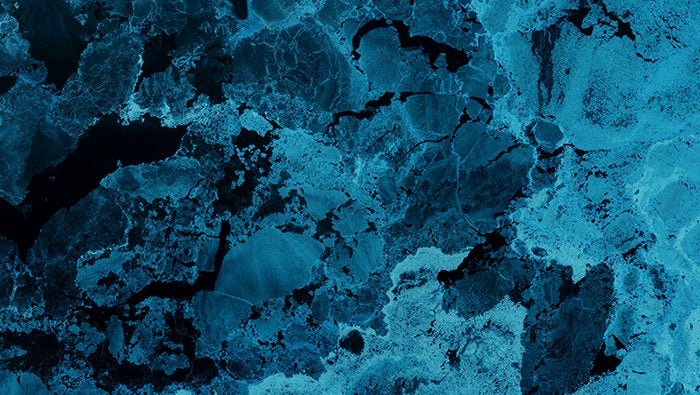
5. Overexploitation of marine resources
Human reach is not just limited to the land, the demand for seafood and fish comes with its own issues. Commercial fishing methods like bottom‐trawling can completely destroy the ocean floor, coral reefs and all of the life that depend on those ecosystems. The methods used by fisherman are often indiscriminate, meaning they don’t just catch the target fish species, but can also trap animals like dolphins, sea turtles, sharks and whales. Furthermore, we have completely over‐used and overexploited the fish stocks in our ocean. A recent report stated that 90% of the world’s fish stocks are either fully exploited, overexploited or depleted.
6. Waste
Not only are we overexploiting the majority of our resources, we are actually producing more meat than we can consume. Each year, the UK alone throws away the equivalent of 110 million animals – we simply cannot take the meat off the shelves quickly enough. The majority of these are chickens, along with nearly 3 million pigs and 200,000 cattle. It is such an abhorrent waste of life and when we also consider the negative impacts that the production of those wasted animals had on the environment and our wildlife, it is almost unbearable to think about.
Why I decided to go to a plant‐based diet
The personal reasons that prompt an individual to make such a huge change to their lifestyle are so varied. I will never try to convert anyone to following more of a plant‐based diet, it is their free choice, but I will always continue to raise awareness of how damaging the meat‐industry is to our planet and get people to think about the way farm animals are treated.
About 5 years ago I started to move towards more of a plant‐based diet and I stopped eating meat for many different reasons:
It’s hard to study a course like zoology at university and not become aware of the impact of the meat industry on our planet.
It felt hypocritical of me, as a conservationist, to raise awareness about the issues that are causing wildlife to be threatened with extinction (e.g. deforestation) whilst continuing to support an industry that causes it.
On a personal level, I don’t agree with the way we treat farm animals like a commodity instead of sentient beings.
I know I couldn’t kill an animal, so I don’t think I have a right to eat one.
It doesn’t matter what your reasons are, whether it’s for animal welfare, environmental reasons, personal health reasons… the science is clear. We all need to be reducing the amount of meat we eat if we want to help conserve the biodiversity of our planet and reverse the negative impacts that are exerted on the environment.
Making the change
Many people feel completely helpless in the face of the environmental crisis – how can one person possibly turn the tide on an issue as big as climate change and biodiversity loss? We must start to realise how powerful we are as individuals and understand that every action we take has consequences. Reducing the amount of meat you eat on a weekly basis will directly reduce your footprint on the planet. Even if the thought of being vegetarian/vegan is daunting, take it slow and steady – I certainly didn’t make the switch in one go.
Start to buy meat that is locally sourced, so it isn’t transported across the world, do your research and buy meat from farms that have high welfare standards, try participating in meat‐free Monday, try the numerous meat‐substitutes that are now available (they’re honestly delicious), explore with your cooking and try new recipe’s that use pulses, lentils and fresh vegetables… change your mindset. Remember that we, as consumers, have so much power and your actions ‐ combined with the actions of others ‐ influence the demand for produce.
We must start to realise how powerful we are as individuals and understand that every action we take has consequences.
We live in such a beautiful world, with millions of diverse and unique species that have evolved over millions of years – each has a role that is vital and contributes to the health and stability of an ecosystem. Surely, we have a moral obligation to try and save as many species as possible, to maintain the biodiversity of life that we have on earth and to try and reverse all the damage that we have inflicted on the environment? We can’t continue to bury our heads in the sand. We have known about the destructive nature of the meat industry for years and yet demand for meat still increases year on year.
We must stop supporting an industry that is one of the driving causes of biodiversity loss and contributes to 14.5% of the harmful gases that are emitted into the atmosphere each year. We must do better. It’s time that we all make small sacrifices, and a decision that saves millions of innocent lives each year as well as reduces the strain on our environment and protects the incredible wildlife of our planet, isn’t a bad sacrifice to make.
If you liked this article, then why not read this next:
References & Further Reading
https://www.ipcc.ch/srccl/chapter/chapter-5/
https://josephpoore.com/Science%20360%206392%20987%20-%20Accepted%20Manuscript.pdf
https://www.frontiersin.org/articles/10.3389/fnut.2018.00008/full?utm_source=GBLO&utm_medium=WEXT&utm_campaign=ECO_FNUT_20180215_vegetarian-organicfood
https://www.ciwf.org.uk/news/2014/04/meat-waste-morally-repugnant
https://unctad.org/en/pages/newsdetails.aspx?OriginalVersionID=1441#:~:text=Close%20to%2090%25%20of%20the,coast%20for%20example%20are%20overharvested.
https://ourworldindata.org/agricultural-land-by-global-diets
https://www.globalagriculture.org/report-topics/meat-and-animal-feed.html
https://www.waterfootprint.org/media/downloads/Mekonnen-Hoekstra-2012-WaterFootprintFarmAnimalProducts.pdf

